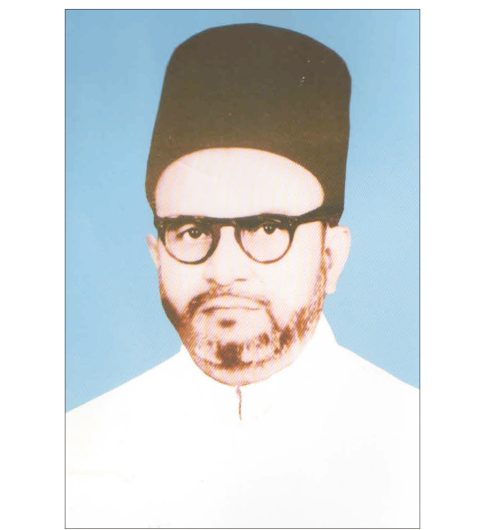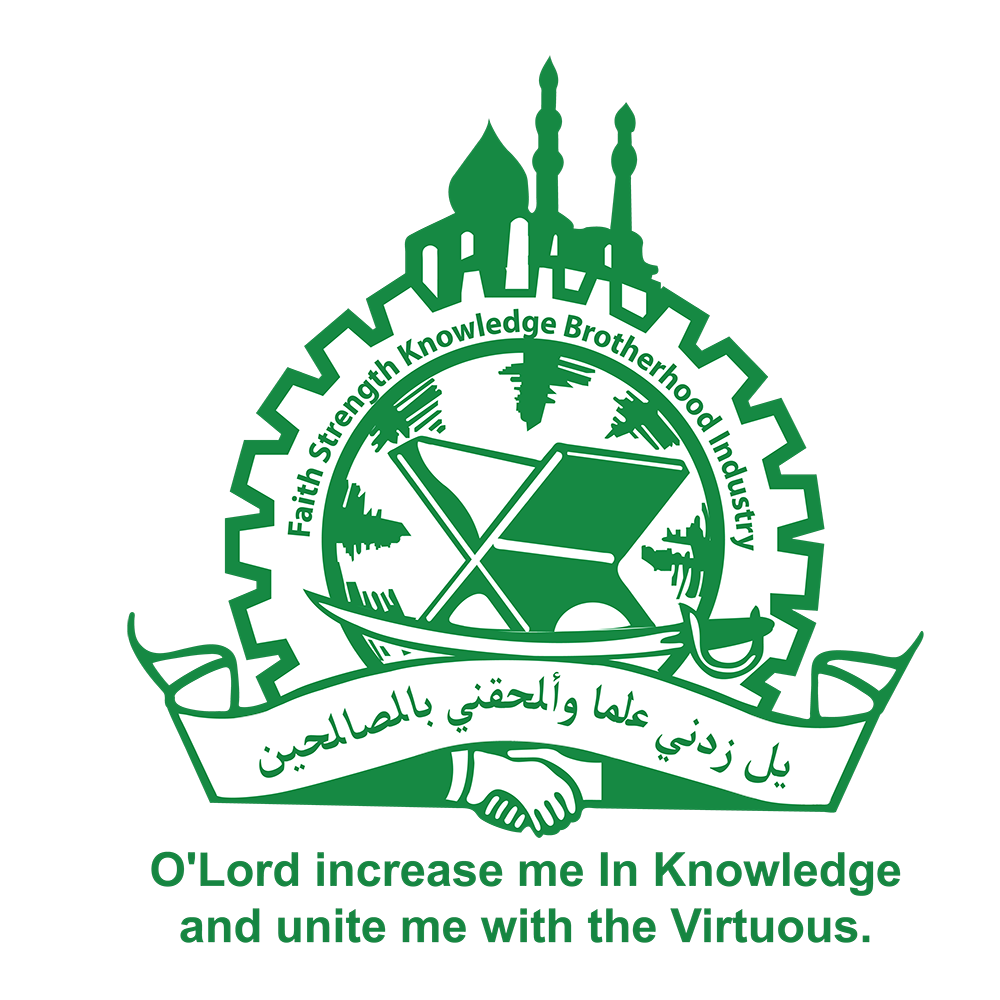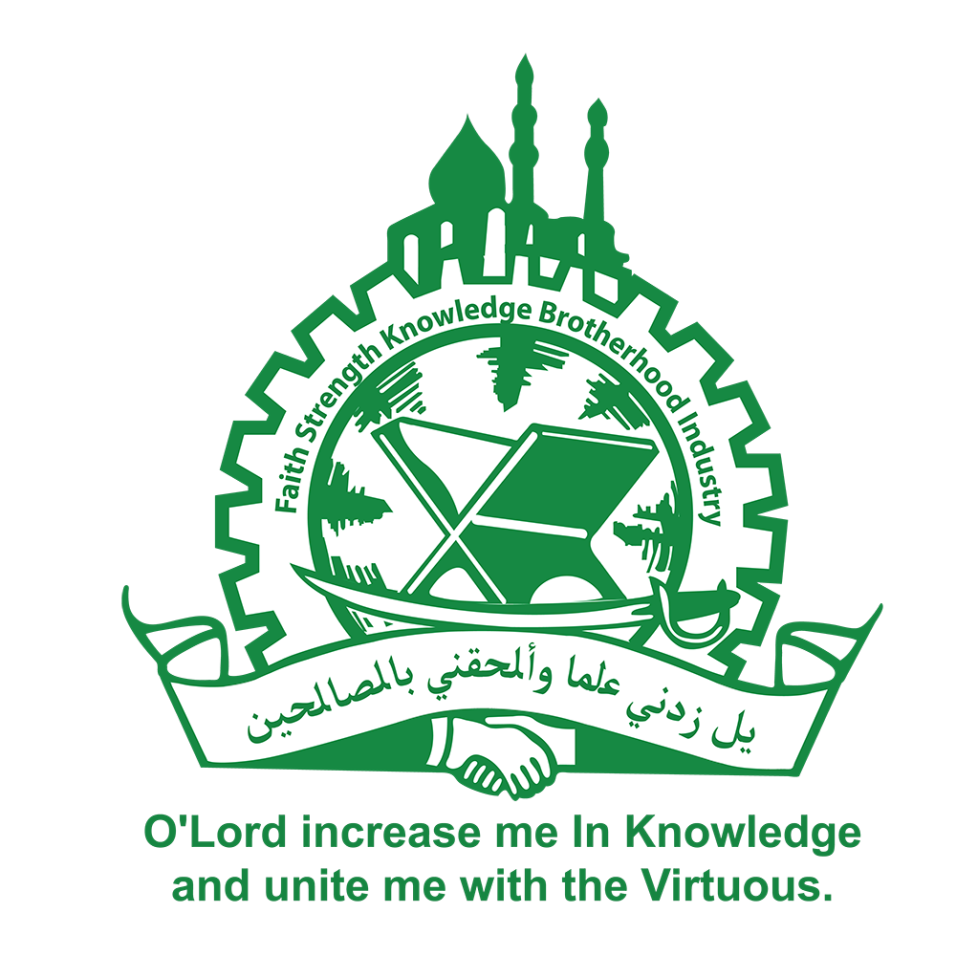
Founder
“The learned lives, although he dies.” – Imam Ali ibn Abu Talib (a.s.)
Janab S. V. Mir Ahmed Ali Sahib was born on 15 July 1902 in Madras, British India. He was born into a family whose paternal ancestors being descendants from the Fourth Holy Imam Ali ibn al-Husayn Zayn al-‘Abidin (a.s.) with the honorific al-Sajjad, called themselves Sajjadis. Originally from Hejaz, they migrated to India through Iran and settled down at Bijapur. His great-grandfather Janab Mir Abdul Ali Sajjadi Sahib served as a commander in the Mughal Army and earned the distinction with the title Vafakhani for his loyalty to the crown. Thereafter, the members of his family became popular as Sajjadi Vafakhani.
After his return from the Burma War, Janab S.V. Mir Ahmed Ali Sahib’s father received his share of the estate from his uncles and came down to Madras City with the determination to educate his three sons.
Education
Janab S.V. Mir Ahmed Ali Sahib completed his recital of the Qur’an at the age of 9 from his maternal uncle Janab Janab Mir Jaffer Hussain ‘Peer’ Sahib. He was then admitted to the Harris High School, Madras for his English education. The school mandated the study of Bible, and Janab S.V. Mir Ahmed Ali Sahib got the opportunity to study the Holy Bible extensively so much as to win the Bible Prize and the Bible scholarship, every year. Frequent discussion with the then Principal of the institution Rev. Canon Goldsmith and Mr. Hanuman Singh, the Bible teacher ensured a thorough knowledge of Bible, having learnt by ear, most of its passages.
After the completion of the school course, he joined the clerical service in the Government Muhammadan College (later renamed to Government Art College, Madras). During his service he obtained the title of Munshi Fazil, B.O.L (Bachelor of Oriental Languages) Degree and qualified himself with M.A in Arabic and Persian. He was awarded the Assistant Professor in the same college where he obtained the B.T., ( Degree in teaching). He was then absorbed in the same college as Asst. Professor where he obtained the B.T., (Degree in teaching). He also took up the Madras University Diploma Course in German. He took a year’s leave and joined the Research Course of M.Ed. degree ( Master In Education) with Psychology as his special subject. Under the guidance of Dr. G. D. Boaz, the Chief Professor and the Head of the Department of Psychology (Madras University), he submitted and got his thesis accepted. After re-joining the college, at the instance of Dr. M. A. Huq, the then Principal of the college; he obtained the diplomas of Higher Proficiency in Arabic and Persian.
EducationMadarasa-e-Hussainy and Yateemkhana
It was at this time when Janab S.V Mir Ahmed Ali Sahib founded The Husainy Trust (formerly known as Madarasa-e-Hussainy and Yateemkhana) in 1943.
Janab S.V Mir Ahmed Ali Sahib travelled extensively after taking voluntary retirement from Govt. Muhammadan College. In the mid-fifties in his travels through India and abroad, he devoted his entire life to the upliftment of the orphans and destitute children. The trust expanded and grew, bringing in much required funds to purchase land and build a school, a home for orphans and the destitute and a Training Institute at Ramapuram, Saidapet Taluk, Chengelpet District. This whole settlement with all the buildings, he named as Husainabad, as it is still referred to, to this day. He served as the president of The Hussainy Trust until his death on 17 September 1976.
Publications
During the tenure at the Government Muhammadan College, Janab Mir Ahmed Ali Sahib and his friend Janab Mr. G.A. Musa-e-Raza Sahib B.A., started a monthly magazine called the Peace Maker. The journal had a small circulation to parts of India and few places abroad.
The Peace Maker had considerable popularity and demand from Ceylon and important libraires in America and many Scholars started contributing articles on religious philosophy.
This was the journal which answered the mischievous article of Janab Dr. Zewmer Sahib published in his journal “The Muslim World” under the Title “the Word of God or Word of man” in which he has represented the Word of God as Bible and Word of man as the Holy Quran, and as a result it became very popular among the Christian public. Fearing its spreading fame and outreach, a complaint was filed to the then (British) Government of Madras, citing that Janab S.V. Mir Ahmed Ali Sahib being a government official should not be indulged in the publication of any matter from the press. The publication had to be unfortunately stopped. Janab S.V. Mir Ahmed Ali Sahib later in a small booklet ‘Truth revealed’ brought about the details on the success of the Peace Maker magazine.
Translation of the Holy Quran
During his lifetime, Janab Mir Ahmed Ali Sahib authored many a book but was best known for his Quran translation by the self-explanatory title “The Holy Qur’an: with English translation of the Arabic text and commentary according to the version of the Holy Ahlul-Bait: with special notes from Ayatullah Agha Haji Mirza Mahdi Pooya Yazdi Sahib on the philosophic aspects of some of the verses” first published in 1964.
Other Publications
Some of the books he authored are

